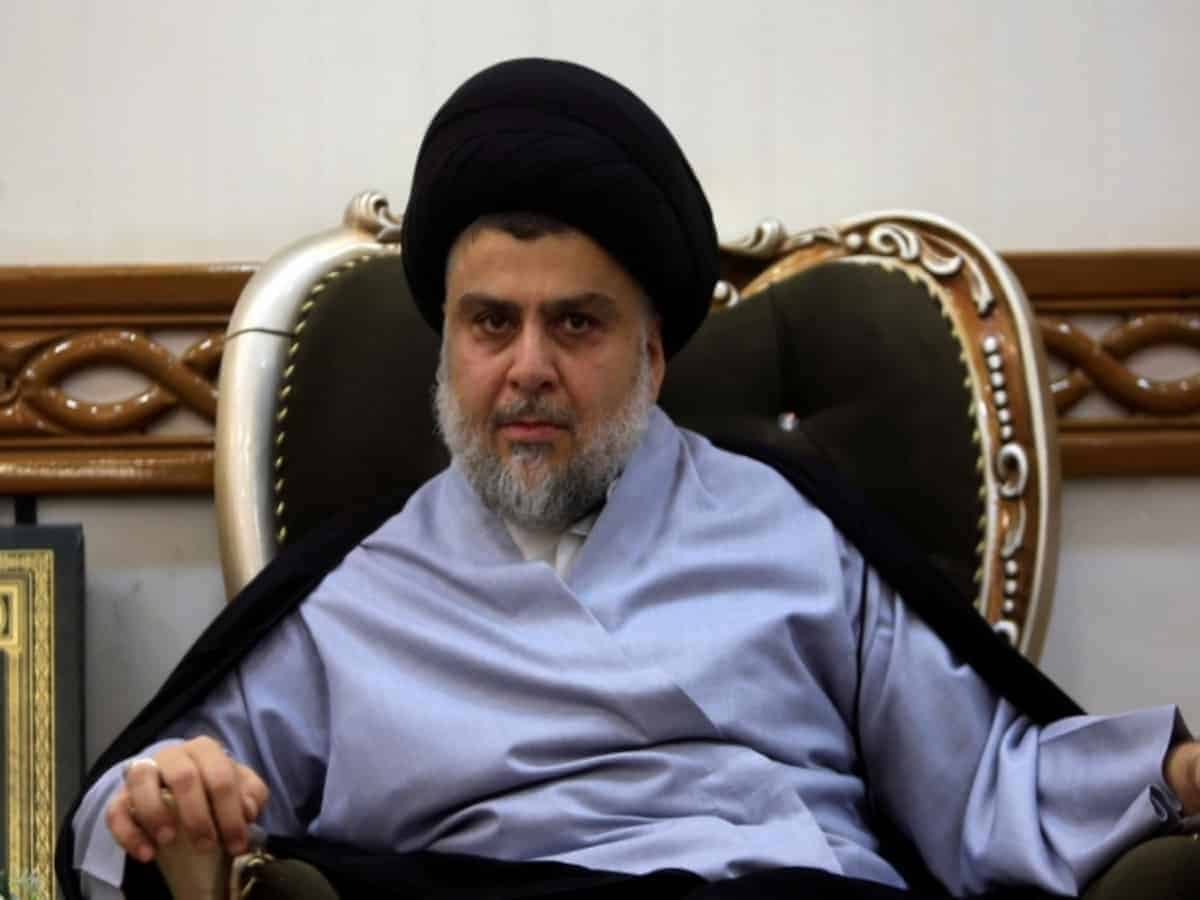Hyderabad: Remaining Iraq’s most influential political figures, Muqtada al-Sadr plays a pivotal role when it comes to Iraq’s future. Even though he is considered the kingmaker, it remains unclear if he can form a government with stability.
Al-Sadr’s party obtained 70 parliament seats out of 329, in the last elections, which is a significant increase compared with the 54 seats he won in 2018. However, al-Sadr reportedly did not run as a candidate for Iraq’s prime ministership.
Ruba Ali Al-Hasani, a postdoctoral researcher at Lancaster University and project SEPAD told Al-Jazeera that the reason is relatively simple and founded in al-Sadr’s political strategy. She said, “Sadr’s strategy to maintain followership is his claim to be a reformer. Using this claim, he has supported the Tishreen/October Movement for months until Iran called on him to withdraw this support.”
Furthermore, she informed that his flip-flopping on this particular matter may have cost him some followers. However, for the most part, his followership is blindly loyal and truly believes in his image as a reformer. “On this basis, I can see Sadr avoiding the premiership to maintain his claim to reform. His party also is strategic in its alliances. In the 2018 election, it allied with the Communist Party of Iraq to maintain this reform title,” Al-Hassani added.
However, the questions around his persona have not had a significant impact on his popularity. “This is all ironic, considering that he has had Sadrists in previous cabinets holding ministries such as the very deteriorating Ministry of Health while claiming to bring about reform,” Al-Hassani said.
Moreover, by falsely claiming to boycott the election in the late summer, he reportedly won leverage because all the politicians who would seek legitimacy in the election needed him to participate. “This was a smart move, so when Sadr did officially ‘rejoin’ the elections, we learned that he never really intended to boycott, as his party had been mobilizing in the meantime with a mobile app, voter card registration, etc,” stressed Al-Hassani.
Additionally, the researcher noted that while al-Sadr’s parties obtained the most seats and the subsequent ability to form the next government, he still faces complex encumbrances, particularly ideological ones.
The report by Al-Jazeera stated that with some Iran-backed parties like Fatah, threatening violence unless they get the vote recount which they demand, government formation will be a challenge. Sadr, with his own militia, Saraya al-Salam, can fight Iran-backed units of the PMF but would rather not. Instead, he has been calling for peace.

